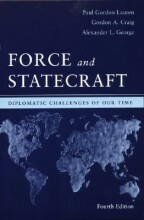More questions
23 important questions on More questions
Name three groups that were denied the freedoms of the English, American and French declarations of rights. What precisely were they denied? Why was France considered to have ‘carried the torch of freedom further than any other country’?
Property less male citizens and all women were considered to be secondary citizens and were therefore denied voting rights and political participation. Women’s legal status was subjugated to the authority of their husbands. Slavery was common and the rights of indigenous populations in European colonies were violated. Civil rights of Jews were denied. France was considered to have carried the torch of freedom further than any other country as it was the first country to free slaves, decriminalize homosexual activity and emancipate Jews. Its revolutionary agenda involved ‘granting minority rights and freeing all repressed nationalities.’
What according to Hugo Grotius was considered just war? What types of war were forbidden according to natural law?
What was the treaty of Westphalia? What date was it ratified? How did John Locke extend the views of the treaty?
- Higher grades + faster learning
- Never study anything twice
- 100% sure, 100% understanding
Name three factors that contributed to the rise of the West and its capacity to develop and diffuse a modern discourse of Human Rights. How did they contribute?
What is the difference between a positive and a negative right? Should one of them receive priority over the other?
Do human rights apply to groups or to individuals? Why?
Human rights only apply to individuals, not groups. This is the case because only human beings can have human rights and only individuals are human beings. Therefore, only individuals can have human rights. Collectivities have many rights, but not human rights. However, it is important to note that human rights are rooted in the social context- many can only be exercised and often only enjoyed in groups. However, the rights are still held by the individuals of the group and applicable to these individuals, not to the group itself.
What according to Francis Fukuyama is the reason for the staying power of human rights in world affairs? Name two criticisms of his view.
According to Francis Fukuyama all people have a drive to be respected and the idea of human rights is the ultimate form of personal respect. Therefore, the ideal (not imperfect practice) of human rights is the most perfect form of contribution to human dignity. However, some have commented that Fukuyama’s view of human rights is too secular and universal and therefore it demeans local cultures and religions that give meaning to many people. Also, even pragmatic liberals believe that human rights is only one means , not necessarily the most significant one in achieving human dignity.
What did Kant's 'Perceptual Peace' entail?
Msg_txtwhat was John Locke's argument on the right to private property?
the work of his hand.he maintained that the rights to life and property
were inalienable rights of nature that the state, to gain moral
legitimacy had to secure.
Msg_txtHow did the English Levellers define the "right to private property?" (Ishay)
text-decorationEN-GBwhat are the 3 special features of human rights? Describe them?
text-decorationEN-GBtext-decoration
EN-GBHuman rights are the rights that one has simply because one is a human being. They are:
EN-GB1.Equality:EN-GB one either is or is not a human being and therefore has the same human rights than every other human being.
EN-GB2.Inalienable: EN-GBone cannot stop being human,no matter how badly one behaves nor how barbarously one is treated.
EN-GB3.Universal: EN-GBin the sense that today we consider all members of species human beings, and therefore holders of human rights.
Why was the definition of private property considered so important?
What is the importance of Confucianism in China?
Why is Hugo Grotius such an important figure in the history of International relations and Human Rights?
Msg_txtWhat was the Paris Commune and what did they fight for?
Msg_txt
What were the goals of the republican party that the workers supported ?
Anti-Slavery
Msg_txt
what is the most powerful international organization for human rights?
What is the core idea of liberalism in HR?
mso-ansiEN-USWhat did the First Reform Bill and the Chartists call for?
mso-ansiEN-USHow did rights for education develop? Where were the rights for education declared mso-spacerun in the twentieth century?
The call for public education and educational reforms resulted in order to counter claims that only educated citizens should vote. Indeed, Marx and Engels called for the right of children to a free public education. By the end of the nineteenth century the importance of education was realized for democracy and technologically advanced manufacturing and therefore elementary education became free and compulsory. In the twentieth century, Article 26 of the Universal Declaration of Human Rights and Article 13 of the Covenant on Economic, Social and Cultural rights declared that childhood education was a fundamental human right.
According to the liberals, what can encourage peace? Why?
mso-ansiEN-ZAEN-ZAWhat were two arguments given against the cost-effectiveness of slavery?
EN-ZAIn 1776 Adam Smith argued that free workers would be more cost effective than slaves since workers would own property and therefore would be more invested in making produce greater (so that their own proportion may be so) than a slave who ‘consults his own ease by making the land produce as little as possible over and above that maintenance.’ Furthermore, during the first decades of the nineteenth century, labour-saving agricultural machinery as well as other changes affecting the economy of agriculture highlighted that slave labour was not so cost effective.
The question on the page originate from the summary of the following study material:
- A unique study and practice tool
- Never study anything twice again
- Get the grades you hope for
- 100% sure, 100% understanding































